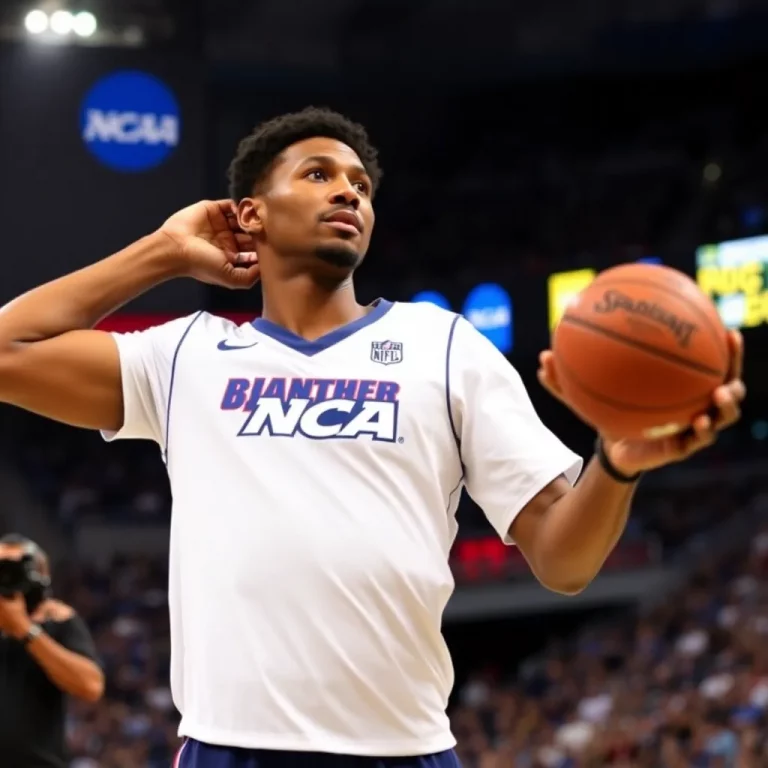Indianapolis — The NCAA is considering a new proposal that would allow athletes and staff at member programs to engage in betting on professional sports. This potential change aims to shift the focus of enforcement from college sports betting to issues related to gambling that could affect the integrity of games. The Division I Council introduced this proposal which will be discussed this fall and could roll out if officials from Division II and Division III also give their approval.
Under the proposed changes, the NCAA would continue to prohibit betting on college sports and sharing information about college athletic competitions with bettors. Additionally, advertising and sponsorship deals related to gambling would still not be allowed at NCAA championship events. This move comes as the organization navigates the growing trend of legalized gambling in the United States.
NCAA President Charlie Baker and other leaders are concerned about athletes facing harassment from gamblers on social media and reports of betting-related issues within athletic programs. The NCAA acknowledged that several violations related to sports betting by staff members at member schools have been resolved and indicated that its enforcement staff is actively dealing with ongoing gambling issues.
There have been thoughtful discussions on whether current NCAA policies are realistic as many athletes are now adults. The rules on sports betting were created when gambling was largely illegal across the country. Josh Whitman, the athletic director at the University of Illinois and chair of the Division I Council, noted in an NCAA release that there needs to be meaningful conversations about different rules for betting on professional versus collegiate sports.
Jon Duncan, the NCAA’s vice president of enforcement, mentioned that the number of cases related to sports betting violations has significantly risen, emphasizing the need for better oversight. Dr. Deena Casiero, the NCAA’s chief medical officer, commented that allowing betting on professional sports could facilitate better education about gambling risks rather than promoting a strict abstinence-only approach.
In related news, the Division I Board of Directors formally adopted new roster limits, part of a settlement linked to a major antitrust lawsuit. Other recent updates include capping basketball regular-season games, the introduction of flag football for women’s sports, and upcoming changes to fencing championships scoring.
Lastly, the Division I Council rejected a waiver request from Sacramento State that aimed to move to the upper-tier Division I Football Bowl Subdivision as an independent program. This decision follows their announcement of leaving the Big Sky Conference. The school’s president expressed disagreement with the ruling, indicating a determination to pursue FBS football in the future, which may lead to potential legal action against the NCAA.


